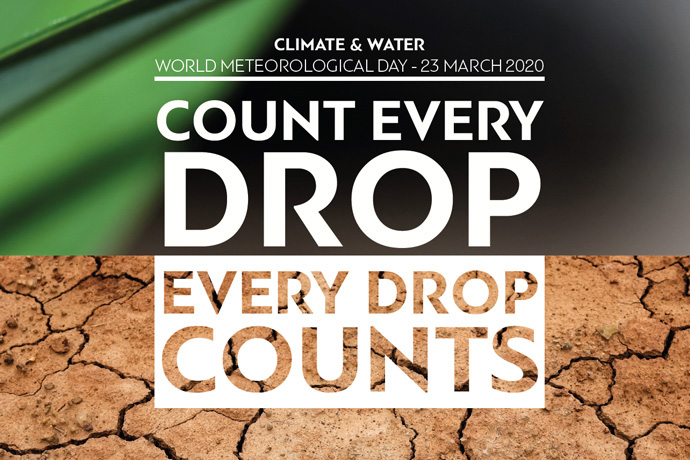

This year, World Meteorological Day on 23 March and World Water Day share the theme of climate and water. In a message to mark the day, the Secretary-General of the World Meteorological Organization, Petteri Taalas, said that the world faces challenges over floods, droughts and access to clean supplies.
“Water is essential for the production of our food, virtually all of our goods and services and for the environment,” he said. However, the world faces increasing challenges posed by “water stress, floods and droughts and lack of access to clean supplies”.
“There is an urgent need to improve forecasting, monitoring and management of water supplies and to tackle the problem of too much, too little or too polluted water. World Meteorological Day and World Water Day 2020 therefore share the theme, Climate and Water.”
World Meteorological Day takes place every year on 23 March, commemorating the date in 1950 when the Convention establishing the World Meteorological Organization (WMO) came into force. World Water Day officially falls on 22 March but is celebrated jointly with World Meteorological Day this year.
How weather forecasting supports flood and drought prediction
In an interview published by The Parliament Magazine, ECMWF Director of Forecasts Florian Pappenberger argues that the links between weather forecasting and flood prediction are set to become stronger as both activities increasingly rely on an Earth system approach.
“Floods occur because of changes in the distribution and movement of water across the world,” he points out. Such changes are “influenced by interconnected developments in the atmosphere, the land, the ocean and water in all its forms”.
“Adopting an Earth system approach means we can make improved and consistent predictions, not only of weather but also of the conditions on the world’s surface, including how much water is flowing in our rivers.”
He adds that making predictions further into the future will be especially important for droughts.
“If we improve the prediction of temperature and precipitation up to seasons ahead, we will get a better handle on droughts. Such forecasts could, for example, support planning in agriculture: the type of crops we plant, the best use of water for irrigation and the optimum harvest time. This will improve productivity as well as food security.”
You can read the full interview here.

The interview with Florian Pappenberger was published by The Parliament Magazine, a fortnightly EU politics magazine covering European Parliament news, opinion and comment.
Top image: adapted from the WMO’s World Meteorological Day poster.
